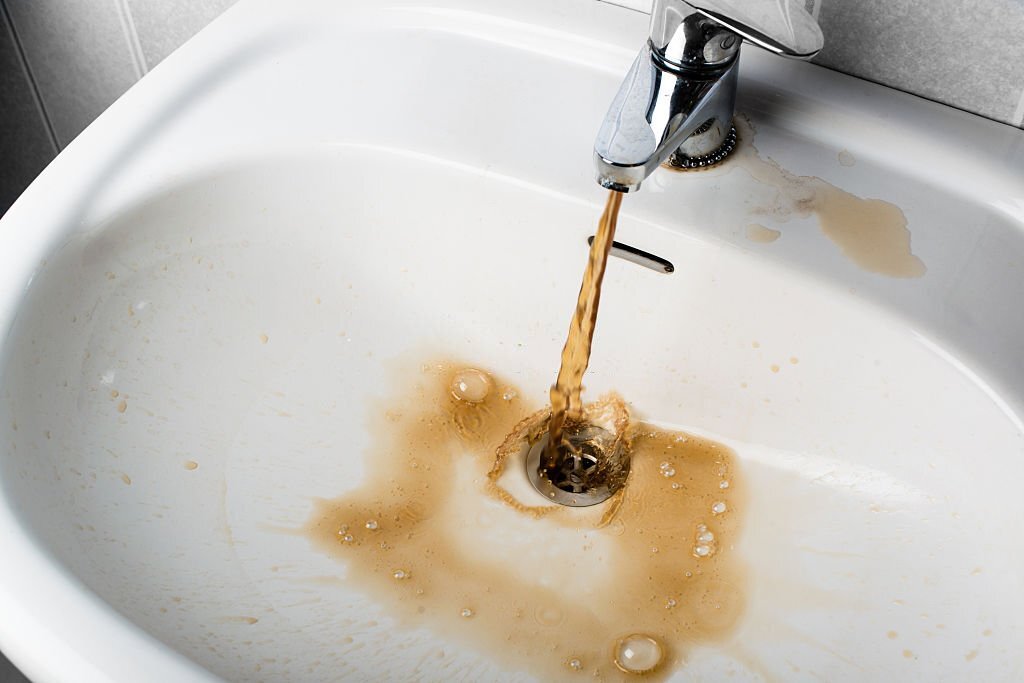
It is possible to encounter an unpleasant taste or odor, especially if your home has a well water supply. Iron is one of the most common causes of this issue. Fortunately, there are ways to remove iron and odor from well water, and one of the most effective methods is using an iron filter.
Iron removal filters are specially designed to remove iron and other contaminants from well water, leaving you with clean and fresh-tasting water. In this comprehensive guide, we will discuss choosing the best iron filter for your well water and the different types of iron found in the water.
Odor and Taste in Well Water Explained
Well water can have an unpleasant taste or odor due to iron, manganese, sulfur, decaying organic matter, and other contaminants. The smell can be reminiscent of rotten eggs or sewage, and the taste can be metallic, bitter, or musty. These contaminants can also cause staining on clothes, appliances, and fixtures.
Iron in well water can exist in four forms: clear water iron, red water iron, organic iron, and iron bacteria. Each form requires a different treatment method. Determining the iron form in your well water is essential before choosing an iron filter.
Four Types of Iron Found in Well Water
Clear Water Iron
This is the most common form of iron found in well water. It is not visible to the naked eye and can be detected only through laboratory tests. It often occurs when the water is pumped from the ground and comes into contact with air, causing the iron to oxidize and form a clear, colorless solution.
What is the Solution?
A basic water softener or a catalytic carbon filter is the best iron removal filter system for clear water iron. A basic water softener can remove up to 5 ppm of iron. A catalytic carbon filter can remove up to 10 ppm of iron and other contaminants such as chlorine, herbicides, and pesticides.
Red Water Iron
This is more visible than clear water iron and appears as reddish-brown stains on fixtures, appliances, and clothing. It is caused by iron that has oxidized and formed rust.
What is the Solution?
The best iron filter system for red water iron is an oxidizing filter. An oxidizing filter uses aeration and backwashing to remove iron and other contaminants. It can remove up to 15 ppm of iron and has the added benefit of removing sulfur, manganese, and other impurities.
Organic Iron
This is caused by naturally occurring organic matter in the water. The organic matter reacts with the iron, causing it to dissolve and turn into a soluble form. This type of iron is often found in shallow wells and surface water sources.
What is the Solution?
Organic iron requires specialized treatment or activated carbon filters. The former uses a special media that oxidizes the iron, while an activated carbon filter removes the organic matter.
Iron Bacteria
Iron bacteria are microorganisms that live in the water and feed on iron. They can create a slimy biofilm that can clog pipes and filters. Iron bacteria can also cause a foul odor in the water.
What is the Solution?
Iron bacteria require specialized treatment, such as chlorination or ozone systems. A chlorination system uses chlorine to kill the bacteria, while an ozone system uses ozone to oxidize the iron and kill the bacteria.
Home Tests
Before investing in an iron filter, it’s essential to understand what type of iron is present in your well water. You can determine the type of iron in your water through home water tests that are readily available.
One of the most effective ways is using a water test kit that measures your well water’s pH, iron, and other contaminants. This kit provides a comprehensive analysis of your water quality and helps you determine the appropriate treatment method.
Physical Inspection of Your Water and Pipes
A quick physical inspection of your well water and pipes can help you identify any visible signs of iron or sediment buildup. Check for any visible iron stains in sinks, toilets, and showers. Red or orange stains indicate the presence of iron in the water. If you have iron pipes, check for any signs of rust or corrosion.
Additionally, check for any sediment buildup in your water heater tank. Sediment buildup can result in poor water quality and lower the efficiency of your water heater. If there is any sediment buildup, it’s an indication that your water contains high levels of iron or other minerals.
Check Your Well Pump Flow Rate
It’s essential to know your well pump flow rate before investing in an iron filter. The flow rate is the amount of water that flows through your well pump in a minute. The flow rate determines the size of the iron filter you need.
If the flow rate is low, you may need to install a booster pump to increase the water pressure. A low flow rate can also indicate a clogged or dirty well screen, which affects the well’s ability to supply water.
Steps to Find Out Your Well Pump Flow Rate
To determine your well pump flow rate, follow these simple steps:
Step 1: Turn off all water outlets in your home.
Step 2: Find your pressure tank and locate the pressure gauge.
Step 3: Turn on a faucet and note the pressure reading on the gauge.
Step 4: Record the pressure reading and turn off the faucet.
Step 5: Wait for the pressure gauge to return to its original reading.
Step 6: Turn on another faucet and repeat the process.
Step 7: Repeat the process for all water outlets in your home.
Step 8: Add up the flow rate from all water outlets to determine the total flow rate.
Test Your Well Water
A quick inspection and test of your well water can help determine if any contaminants are present. Some common contaminants include bacteria, nitrates, and chemicals. The Environmental Protection Agency recommends that private wells be tested annually for bacteria and nitrates and every five years for other contaminants. Testing your well water after any flooding or other natural disasters that can affect the water quality is also essential.
Check For Odors in Well Water & Water Heater
To determine the source of the odor, perform the following steps:
- Turn on a cold water faucet and let the water run for several minutes.
- Smell the water. If the odor is present in the water, it is likely caused by a problem in your well water system.
- Smell the water coming from your water heater. If the odor is only present in hot water, it is likely caused by a problem with your water heater.
- Check the anode rod in your water heater. If the rod is corroded or depleted, it may need to be replaced.
- If sulfur bacteria cause the odor, consider
Next, check for unusual odors in your well water and water heater. You may have hydrogen sulfide in your water if you detect a rotten egg or sulfur-like odor. This gas can come from a variety of sources, including decaying organic matter in the well, the presence of sulfur bacteria, or high levels of dissolved sulfur in the aquifer.
Another common odor problem in well water is caused by the buildup of bacteria in the water heater. To check for this, turn off the power supply to the heater and let it cool down for a few hours. Then, open the valve at the bottom of the tank and allow a few gallons of water to drain. If the water smells foul or has a metallic taste, you may need to flush the tank and disinfect it to eliminate the bacteria.
Choosing the Right Iron Filter for Your Well Water
Once you’ve determined the type and severity of the iron and odor problems in your well water, you can start exploring your options for removing them. Here are some key factors to consider when choosing an iron filter system:
- Type of filter: There are several types of iron filters on the market, including backwashing filters, cartridge filters, and oxidation filters. Each type uses a different mechanism to remove iron and other minerals from the water, so it’s important to choose the one that’s best suited to your specific needs.
- Capacity: Iron filters are rated by their capacity to remove iron and other minerals from the water. This is typically measured in grains per gallon (GPG) or parts per million (PPM). You’ll want to choose a filter that can handle the amount of iron and other minerals in your water based on your test results.
- Flow rate: As we mentioned earlier, it’s essential to choose an iron filter that can handle the flow rate of your well pump. This will ensure the filter can backwash and regenerate properly without reducing your home’s water pressure or flow rate.
- Maintenance: Like any water treatment system, an iron filter requires regular maintenance to ensure it functions properly. Make sure to choose a filter that’s easy to maintain and service and with clear instructions for cleaning, backwashing, and replacing filter media as needed.
- Cost: Finally, consider the cost of the filter and installation and any ongoing maintenance costs. While you don’t want to skimp on quality, it’s important to choose a filter that fits your budget and provides good value for your money over the long term.
Check for Pipe Corrosion and Scale Build-up
Another potential source of iron and odor in well water is corroding pipes and scale build-up. Over time, pipes can become corroded due to exposure to certain minerals and chemicals in the water. This can cause the pipes to degrade, leading to leaks, blockages, and a decrease in water pressure. Corroded pipes can also cause water to have a metallic taste or smell.
Scale build-up is another common problem in well water systems. It occurs when minerals in the water, such as calcium and magnesium, form deposits inside pipes and fixtures. This can lead to reduced water flow and an increased risk of clogs and blockages.
To check for pipe corrosion and scale build-up, inspect your pipes and fixtures for signs of rust or discoloration. You can also hire a professional plumber to perform a more thorough inspection using specialized equipment.
Oxidizing Iron Filters
These are popular iron filters that use a chemical or physical process to convert iron in the water from soluble to insoluble. This makes it easier for the filter to capture and remove the iron from the water. Oxidizing iron filters can be effective for removing different types of iron, including clear water iron, red water iron, and organic iron.
Which Type of Iron Filter is Best?
The type of iron filter that is best for your well water system depends on several factors, including the type and concentration of iron in your water, the flow rate of your well pump, and the pH level of your water. It is important to have your water tested by a professional to determine the type and concentration of iron in your water before choosing an iron filter.
In general, oxidizing iron filters are a good choice for removing different types of iron, while air-charging iron filters are best for removing iron, manganese, and sulfur odor. However, many iron removal filters are available, each with advantages and disadvantages. Researching and comparing different types is vital before making a purchase.
Get the Iron Filter Your Well Water Needs
Are you tired of dealing with rusty and smelly well water? It’s time to take action and get an iron filter for your home. At Peninsula Water, we offer a wide range of premium-quality iron removal filters that are effective and affordable. We understand that every well water system differs, so we offer various filter options to fit your needs.
Don’t settle for subpar water quality in your home. Our iron filters can remove not only iron but also manganese and sulfur odor, leaving you with clean, fresh-tasting water. Our filters are durable and long-lasting filters provide you with years of reliable performance.
Whether you are looking for customized water treatment in Maryland or other surrounding regions, don’t hesitate to contact us. Our team of experts can help you choose the right iron filter for your home and provide installation services to ensure proper functioning. Contact us today to get started.
Also Read:
How to Find the Right Iron Removal Filter for Well Water?


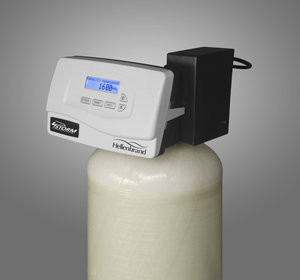
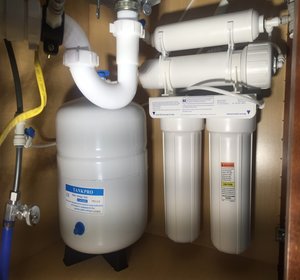
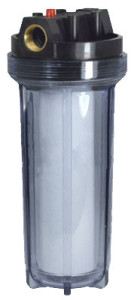
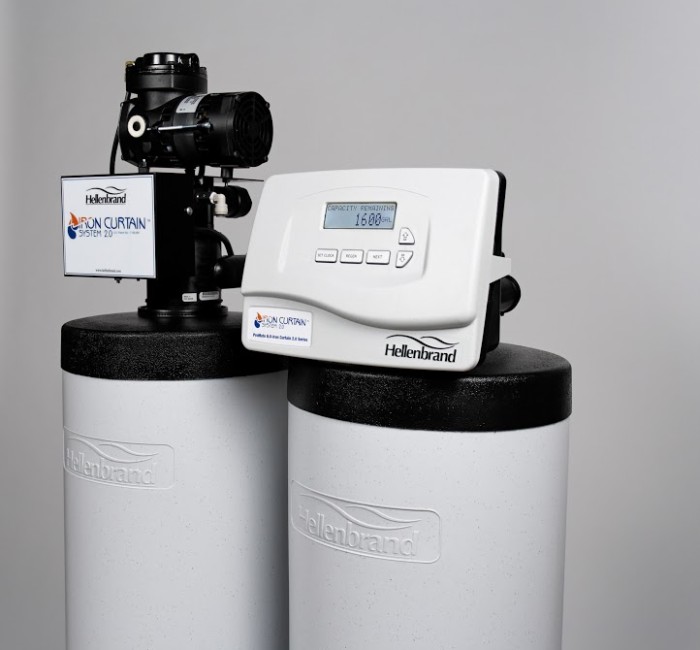
No Comments